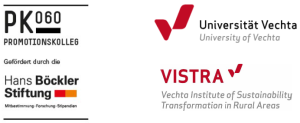About MaSES: Global production and consumption patterns are fundamentally unsustainable, threatening key planetary boundaries. Strategies for averting this ‘ecological overshoot’ have largely focused on ‘greening’ production by reducing either the material intensity (efficiency) or the material throughput (consistency) of economic activity. However, neither of these approaches addresses what constitutes a sustainable scale of economic activity. In MaSES, social-ecological sufficiency—a socially satisfactory standard of living within ecologically sustainable natural resource usage—will be developed as a vital strategy for shifting towards an economy within a ‘safe operating space for humanity.’ Environmental extended material and energy flow analysis will be combined with consensual deprivation assessments to quantify ‘ecologically and socially sufficient’ household consumption levels of key planetary boundaries. MaSES will then assess the feasibility of different strategies for closing the gap between ecologically ‘safe’ and socially ‘acceptable’ household consumption levels.
About the positions: Three Ph.D. positions (funded for 3.5 years each) are now officially advertised (see the PDF below, which can be viewed in English and German for details of how to apply for each position formally). All three positions will be in the Social-ecological Systems Institute (SESI) within the Faculty of Sustainability at Leuphana University in northern Germany.



